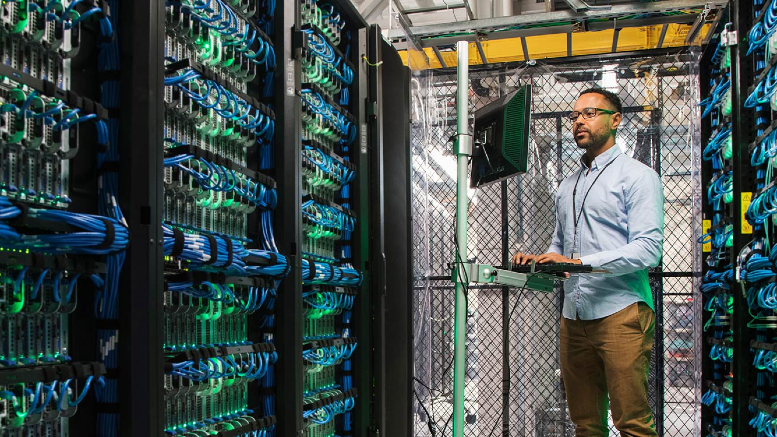Asia Pacific Employees and Employers Clash on Ideal Hybrid Workplace Experience – Unisys Survey
New white paper: Leaders and employees agree hybrid working is more productive, but are not aligned on what is required to achieve it
SYDNEY, Australia, 21 April 2021 – New data reveals that 64% of Asia Pacific organisations plan to change their operating model by 2022, driven by the desire to improve their employee experience, according to a new survey from Unisys Corporation (NYSE: UIS). However, leaders and employees have different views on the technologies and policies required to achieve greater productivity and an ideal employee experience. The findings are included in a new IDC white paper, sponsored by Unisys, titled “Digital Workplace Insights™: Seeking Digital and Experience Parity to Support the Hybrid Workforce.”
The Unisys-sponsored research surveyed more than 1,100 respondents, including business leaders and employees, across 15 countries: Australia, Belgium, Brazil, Canada, Chile, Colombia, France, Germany, Malaysia, Mexico, Netherlands, New Zealand, Singapore, the UK and the U.S., to examine how organisations are transforming their operating models to respond to business disruptions. It found that to do this, business leaders are focused on the employee experience to shape their technology, procedures and policies. However, while aligned in this common objective to provide employee experience parity, there are some gaps between what employees want, and what their employers think they want to achieve it. Results are detailed in the IDC White Paper.
Hybrid working and the digital workplace are here to stay
The survey found that before the pandemic, 5.2% of the workforce across Australia, Malaysia, New Zealand and Singapore worked remotely - the highest of the four regions surveyed. COVID-19 forced a rapid move to remote working in 2020 with more than one third (36%) of this workforce working remotely by November 2020. Based on this experience, the majority of employers (74%) and employees (70%) agree that working remotely is just as, or more, productive than working in an office. While some roles will return to the office by 2022, business leaders estimate 24% of their workforce will work remotely – more than seven times higher than before the pandemic.
Forty percent of Asia Pacific employees prefer remote working, higher than North America (34%), Europe (35%) and Latin America (39%). Globally, the highest preference is among Millennials, born 1981-1996 (47%) compared to just 18% of Baby Boomers, born 1946-64.
“This shift to a large proportion of employees working remotely, as well as across a hybrid of offices, other facilities and in the field, demands digital parity – where all workers have secure access to the resources required to do their jobs, no matter their preferred device or location. However, the most successful organisations will be those who offer experience parity – this requires thinking beyond just technology and considering the organisational structure, policies, procedures and culture required to ensure an excellent employee experience where people can engage effectively with each other, collaborate and work productively in an agile work environment,” said Leon Sayers Advisory Director at Unisys Asia Pacific.
Disconnect on what drives a positive employee experience and experience parity
The top three reasons given by Asia Pacific business leaders to change their operating model by 2022 are better employee experience (71%), employee productivity (56%) and employee safety (56%). However, the survey revealed a disconnect between Asia Pacific leaders and employees about what technology and policies would improve the remote working experience:
- When asked what technology would make remote working more productive leaders want collaboration tools (35%), secure remote access (33%), moving applications to the cloud (33%) and virtual desktop infrastructure (32%). Whereas employees want upgraded laptops (31%), connectivity solutions (27%) and printers or scanners for home use (26%).
- Leaders say the greatest challenges to working from home are unreliable connectivity (51%) and difficulty accessing data or systems (48%). However, the majority of employees say there are no challenges (30%), although one in five cite non-work distractions and unreliable connectivity as issues.
- When looking at what policy changes would provide a better employee experience Leaders are focused on employee safety wanting commuter benefits to reduce the risk of exposure going to and from the workplace (33%), procedures to identify employees with symptoms (30%), extra security policies for entering facilities (31%) and self-quarantine for workers who had been exposed to COVID-19 (29%). Whereas employees want more liberal remote work from home policies (28%), updated leave options due to COVID-19 (25%) and ways to identify if employees have COVID-19 symptoms (24%).
- Leaders and employees agree that ensuring employees are recognised for their accomplishments is the top non-salary or non-benefit criteria for making an ideal employee experience. However, having a work location and schedule that is conducive to family life is more important to employees than leaders.
- There are generational differences too: to be more productive Millennials want upgraded laptops while Baby Boomers want better connectivity. Technology used at work is twice as likely to make Millennials feel positive about their job or proud to work for their employer (65% globally) compared to Baby Boomers (34%). It is also important for almost half of Generation X (49%), born 1965-1980.
- Forty-seven percent of Asia Pacific employees, and almost half of respondents globally (49%), say that the technology support they receive makes them feel good about their job or proud to work for their employer. But again, it is twice as important for Millennials (66% globally) than for Baby Boomers (32%). And is important for half (50%) of Generation X.
“To create a great employee experience, employers need to understand what technology, processes and policies their people require to do their jobs effectively. This requires two-way conversations with their teams and a preparedness to change existing procedures. The right devices and sufficient connectivity are fundamentals for remote workers to create digital parity. However, experience parity is driven by things like equal access to IT support as well as employee recognition for their accomplishments no matter where or when they work – they don’t want to be left in a vacuum. They also want to tap into the flexibility of the hybrid work environment to achieve better work-life balance. But they don’t want to be lumped with extra costs to work from home. These elements help create employee experience parity and must be factored into an overall organisational change management approach to successfully move to a hybrid work environment,” explained Mr Sayers.
“In addition, while organisations need to support the breadth of generations they currently employ, Millennials are now aged 25-40 years, accounting for a growing proportion of the workforce, and leadership roles, so their preferences about what makes an excellent employee experience must be given weight in a digital workplace strategy. This includes the quality of the devices they use, IT support they can access and ability to work from home,” he added.
About Unisys
Unisys is a global IT services company that delivers successful outcomes for the most demanding businesses and governments. Unisys offerings include digital workplace services, cloud and infrastructure services and software operating environments for high-intensity enterprise computing. Unisys integrates security into all of its solutions. For more information on how Unisys delivers for its clients across the government, financial services and commercial markets, visit www.unisys.com.au. Follow Unisys on Twitter and LinkedIn.
Contacts:
Claire Hosegood, Unisys APAC,
+61 411 253 663, claire.hosegood@au.unisys.com
Ryan Marnell, The Impact Agency (Australia)
+61 434 616 894, ryan@impactagency.com.au
Allan Botica, Botica Butler Raudon (New Zealand)
+64 21 400 500 / +64 9 303 3862, allanb@botica.co.nz
















